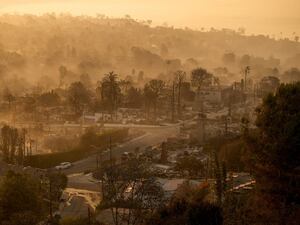South Korea holds memorial for forced labourers in Japan
It was held a day after boycotting a similar event organised by Japan.

South Korea commemorated wartime Korean forced labourers at Japan’s Sado gold mines in a ceremony Monday, a day after boycotting a similar event organised by Japan, as tensions over historical atrocities continue to strain relations between the two sides.
Monday’s ceremony at a former dormitory near the mines on Sado Island, which dates to the 16th century and was listed this year as a Unesco World Heritage site, was organised by South Korea’s Foreign Ministry and attended by nine family members of Korean wartime labourers, the country’s ambassador to Japan and other officials.
Japan on Sunday held a memorial service for all workers at the Sado mines, including Koreans. It thanked them for their contributions at the mines but did not acknowledge their forced labour or issue an apology.

In a short speech, South Korea’s Ambassador to Japan Park Choel-hee offered his condolences to the forced labourers and their families, expressing hopes that the memorial would bring comfort to families.
He said South Korea and Japan should both make efforts to ensure that the painful wartime history is remembered.
“We will never forget the tears and sacrifices of the Korean workers behind the history of the Sado mines,” Mr Park said.
“I sincerely hope that today will be a day of remembrance for all the Korean workers who suffered indescribable pain under harsh conditions and that this memorial service will bring comfort to the souls of the deceased Korean workers and their bereaved families,” Mr Park added.
Japan’s Chief Cabinet Secretary Yoshimasa Hayashi told reporters on Monday that Japan held the ceremony in line with its pledge at the Unesco World Heritage committee meeting after thoroughly communicating with South Korea.
“It is disappointing that South Korea did not participate,” Mr Hayashi said.
About 1,500 Koreans were forced to labour under abusive and brutal conditions at the mines during the Second World War, historians say.





